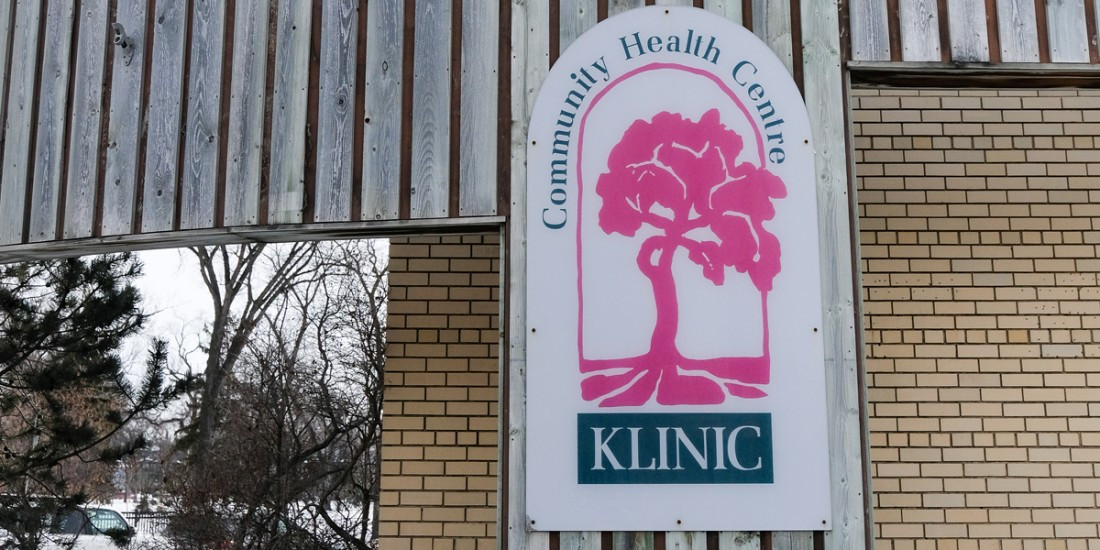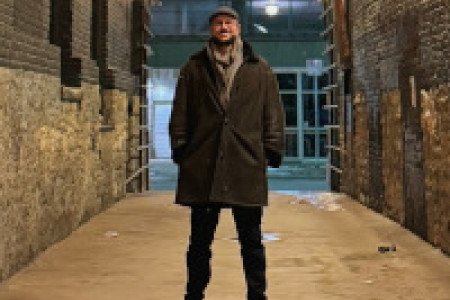Sexual and reproductive health in Winnipeg
How to access services on and off campus
The capacity of Canadians to access, realize and exercise their sexual and reproductive health rights (SRHR) has been influenced by the changing tides of the nation’s politics and the shifting configurations of beliefs and customs throughout the years.
In 2018, the Canadian government announced $104.4 million in funding for projects that take “a comprehensive approach to SRHR, including universal access to family planning and access to safe and legal abortion,’’ cementing the country as a global leader in SRHR, especially for women, and proclaiming that SRHR are human rights.
Meanwhile, the Government of Manitoba has included all forms of sexual and gender identity into its code of protected rights under the Manitoba Human Rights Commision.
Amnesty International states that “sexual and reproductive rights mean you should be able to make your own decisions about your body ... and be free from all forms of sexual violence, including rape, female genital mutilation, forced pregnancy, forced abortion and forced sterilization.”
These rights have not always been accessible to Canadians, with contraception not being decriminalized until 1969 and the right to have an abortion not being completely safe and legal until 1988, after going through several cases in front of the Supreme Court.
Ultimately, we have come a long way in terms of bodily autonomy and SRHR awareness, and in Winnipeg and on the University of Winnipeg (U of W) campus, there exist several resources accessible to the community.
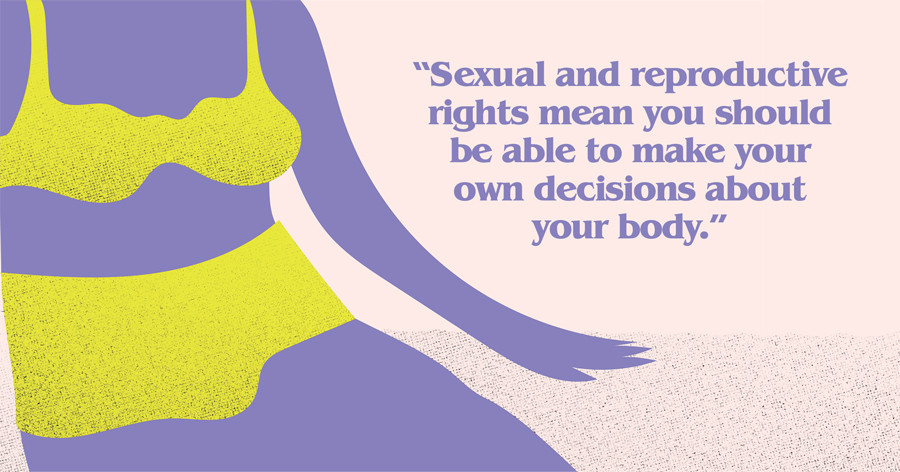
Illustration by Talia Steele
Sexual Health
Dr. Corinne Mason, associate professor of gender and women’s studies and sociology at Brandon University, points to three important resources for sexual and reproductive health in Winnipeg: Klinic and its Sexual Assault Crisis Program, Teen Talk and the Women’s Health Clinic. All organizations are pro-choice.
Klinic offers primary and mental health care and community health services, while its Sexual Assault Crisis Program is for people “who require support specifically related to sexual assault or sexual harassment that occurred as a teen or adult.”
The U of W currently hosts Klinic on Campus, which provides services ranging from medical appointments to Pap tests, contraceptives, STI testing, health workshops and information on abortions and family planning. Klinic on Campus is on the first floor of the Duckworth Centre in room 1D25.
“I would recommend anyone who has experienced sexualized violence or is advocating alongside a survivor in their life (with their consent, of course!) to consider connecting with Klinic’s Sexual Assault Crisis Program,” Mason says.
Corinne Mason, associate professor of gender and women's studies and sociology at Brandon University. // Supplied photo
“Importantly, the program offers a 24-7 crisis line and third-party reporting, which means folks who have experienced violence can pass along that information to police without speaking to them directly or making a formal report.”
She says “reporting is absolutely confidential, and survivors can stay anonymous with police who follow up with the program,” instead of reaching out to these individuals directly.
While both Klinic and the police promise confidentiality, Canada’s Department of Justice finds that only around 5 per cent of sexual assaults are ever reported to the police. However, according to Statistics Canada, there has been a peak in reported cases after the emergence of the Me Too movement.
The U of W campus has a UW Sexual Violence Response Team that can be reached by calling 204-230-6660, and the website describes it as a “small team of employees who co-ordinate accommodations and external resources for students who have experienced sexual violence.”
However, there aren’t currently any publicly available statistics on the number of reported incidents of sexual violence or harassment on campus. Staff, faculty and other U of W employees can turn to the Human Rights and Diversity Office to report any form of sexual misconduct.
Teen Talk is Manitoba’s largest youth health education program and provides services for youth from a harm-reduction and prevention education perspective. Its focus ranges from sexual, reproductive and mental health to substance use and anti-violence education.
“Teen Talk is undergoing dynamic and some rather disappointing changes, including cuts to jobs and a reorganization of their work, but it remains on my list of most important resources in the city right now. Folks in the organization have created a mandate for their work to be decolonial, anti-oppression and youth-led and to prioritize gender and sexual diversity, pleasure and consent,” Mason says.
Illustration by Talia Steele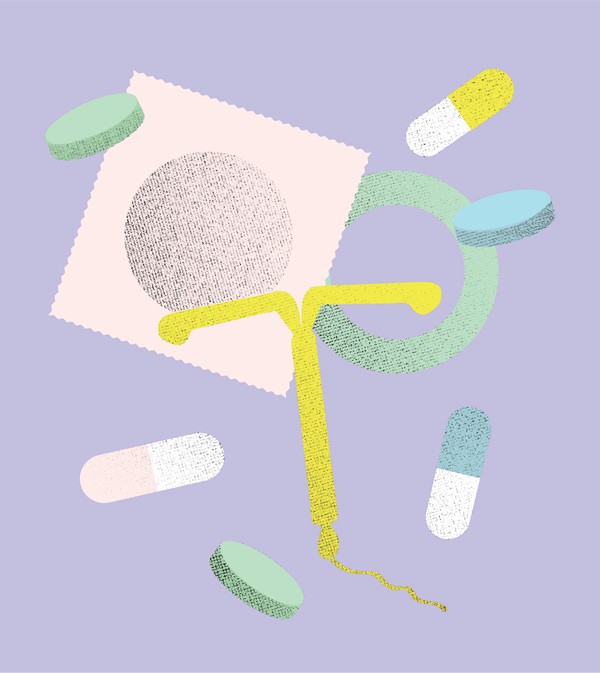
Formal announcements to shut down Teen Talk while allocating its funds to SERC’s (Sexuality Education Resource Centre) Winnipeg and Brandon offices were made on Feb. 26, with the transition to fully take place on April 1. In a blog post, Nicole Chammartin, executive director of SERC and Klinic, stated that instead of pursuing funding for Teen Talk from the province, they “have recommended they pursue an agreement with an Indigenous-led organization.”
Mason says that “since Manitoba’s sexual health curriculum is 20 years old, hetero and cissexist and focuses on the dangers of sex rather than bodily autonomy, pleasure and boundaries, this work is essential to the health and safety of young people.
“Some of the most important and innovative anti-violence preventative work is happening (at Teen Talk), and the people on this team will continue to do this good work for the Winnipeg community, regardless of where they land after Teen Talk is over.”
Reproductive Health
For Manitobans, recent SRHR progress was made when the abortion pill, Mifegymiso, was covered under universal health care and then also made free outside of the major cities of Winnipeg and Brandon.
Mifegymiso helps people obtain medical abortions and is available with a prescription through Manitoba Health. Surgical abortions require an internal procedure and are often conducted at the Health Sciences Centre, depending on the gestation period.
According to the Johnston’s Archives, there were 3,490 completed abortions in Manitoba in 2017, the most recent data available.
Illustration by Talia Steele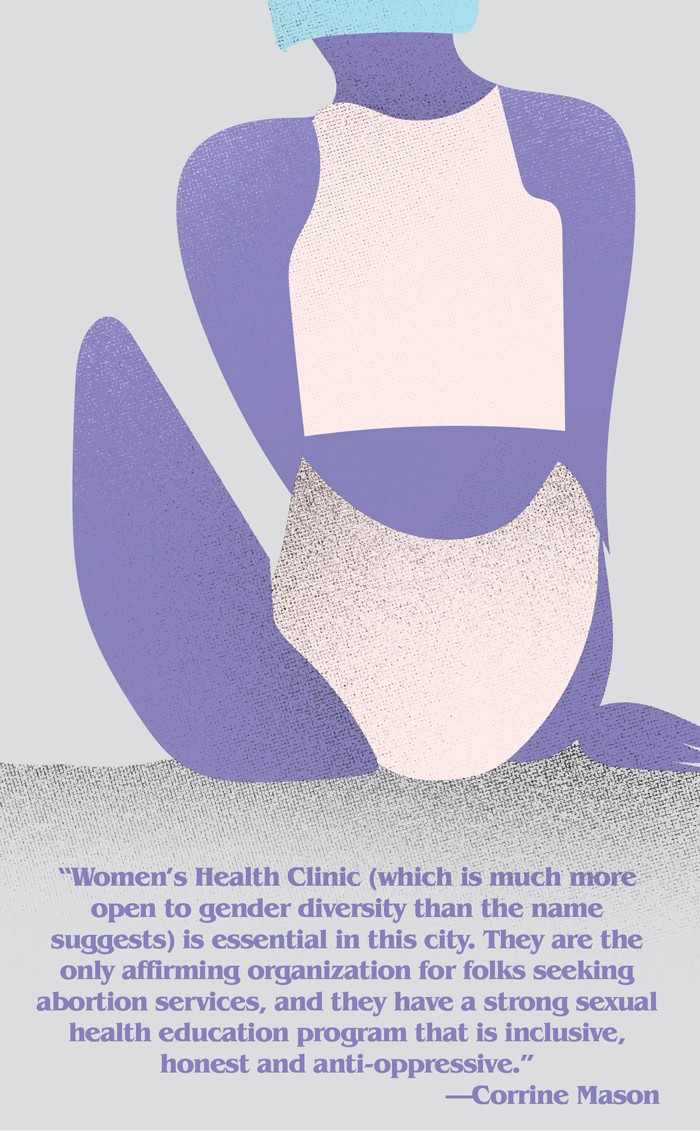
“Women’s Health Clinic offers both medical and surgical abortions. There is no cost if people have a valid Manitoba Health number. People can self-refer for abortions by calling 204-477-1887,” Bockstael says.
“Counselling is part of the process to ensure that people have all the information that they need to make their choices. Those conversations can include decision-making around adoption placements if the pregnant person is interested.”
According to the Government of Manitoba’s “Your Choice for Your Reasons” youth pregnancy handbook, the purpose of counselling is “to assist the young woman to make an informed decision about the abortion procedure, possible risks, options and availability of appointments.” The discussion may also include the suggestion of adoption, guardianship and openness agreements.
“In terms of reproductive health, the Women’s Health Clinic (which is much more open to gender diversity than the name suggests) is essential in this city. They are the only affirming organization for folks seeking abortion services, and they have a strong sexual health education program that is inclusive, honest and anti-oppressive,” Mason continues.
“They also offer free birth control and have prenatal and midwifery services for pregnant people who wish to continue their pregnancy.”
On-campus resources
Jocelyn Malette is a member of the on-campus Women-Trans Spectrum Centre, an “accessible and inclusive resource centre for women and trans students,” and advocates for judgment-free spaces for students to reach out for resources.
“On campus, we have the University of Winnipeg Students’ Association (UWSA), which offers sexual and reproductive health resources, including free menstrual hygiene products and safer-sex materials, such as condoms, pregnancy tests and alternative barrier methods to students of all genders, with no questions asked.”
These resources are available “anytime during UWSA office hours, either by visiting our service centres, such as the Rainbow Lounge or the Women-Trans Spectrum Centre (WTSC), which are located in the Bulman Student Centre, or by asking the UWSA General Office at the front desk for help,” they say.
Malette notes “that the WTSC is for non-cis men, so it's preferred that men and non-trans identifying folks access the UWSA Rainbow Lounge that is open for the 2SLGBTQIA+ community and allies,” bringing into question if there is a need for an exclusive resource centre for heterosexual, cis men on campus.
“The WTSC likes to promote knowledge on effective use of safer-sex resources and direct students to the proper community organizations that offer that kind of care, such as Klinic on Campus for booking STI testing and checking in on regular sexual health,” Malette says.
Recently, the WTSC partnered with the urban and inner-city program campus to provide free resources to students at the Merchants Corner satellite campus in the North End.
Illustration by Talia Steele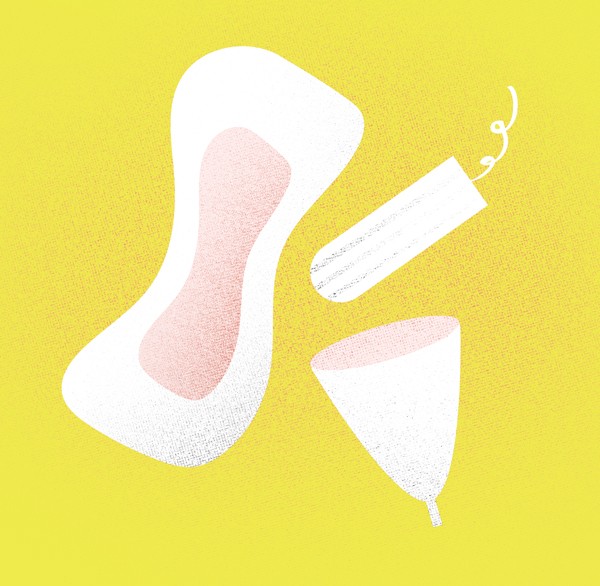
The UWSA was supposed to host the upcoming event “Decolonizing Sexual Health” with sexual health educator and activist Ericka Hart on March 23 from 5 to 8 p.m. in Eckhardt-Gramatté Hall to speak on the topic of sexuality in post-secondary institutions, but due to the COVID-19 outbreak, this event has been postponed indefinitely.
Published in Volume 74, Number 22 of The Uniter (March 19, 2020)

